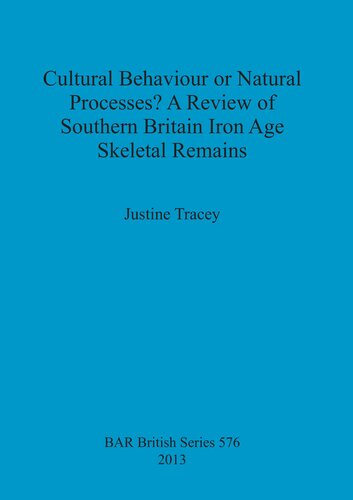

Most ebook files are in PDF format, so you can easily read them using various software such as Foxit Reader or directly on the Google Chrome browser.
Some ebook files are released by publishers in other formats such as .awz, .mobi, .epub, .fb2, etc. You may need to install specific software to read these formats on mobile/PC, such as Calibre.
Please read the tutorial at this link: https://ebookbell.com/faq
We offer FREE conversion to the popular formats you request; however, this may take some time. Therefore, right after payment, please email us, and we will try to provide the service as quickly as possible.
For some exceptional file formats or broken links (if any), please refrain from opening any disputes. Instead, email us first, and we will try to assist within a maximum of 6 hours.
EbookBell Team

4.3
88 reviewsThis research focuses on the British Iron Age and challenging the current hypotheses of exposing the dead on five Iron Age sites in Hampshire and one from Dorset, England. Current theories are based on anthropological analogies and classical texts to understand and interpret the burial record. However, this research focused on understanding the formation of the burial record employing a new science-based methodology. This new approach is both integrated and multidisciplinary, combining the osteological and context taphonomic physical or material evidence to discern cultural behaviour from natural processes. The approach utilises a wide range of forensic anthropology and taphonomy, including l'anthropologie de terrain or archaeothanatology, to identify archaeological signatures from three key and interrelated areas: the remains, the deposition context, and the relationship between the corpse and its deposition circumstance. A new system of categorising Iron Age remains was developed to differentiate funerary and depositional behaviour between sites.